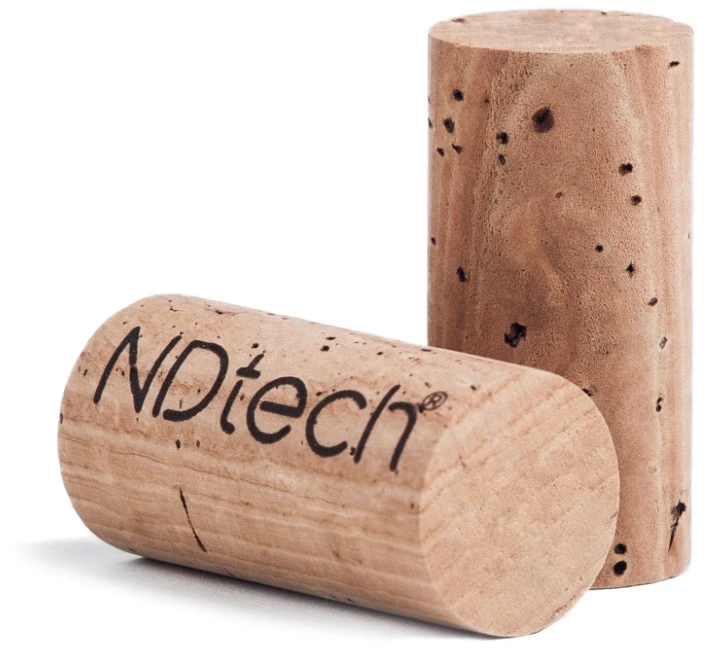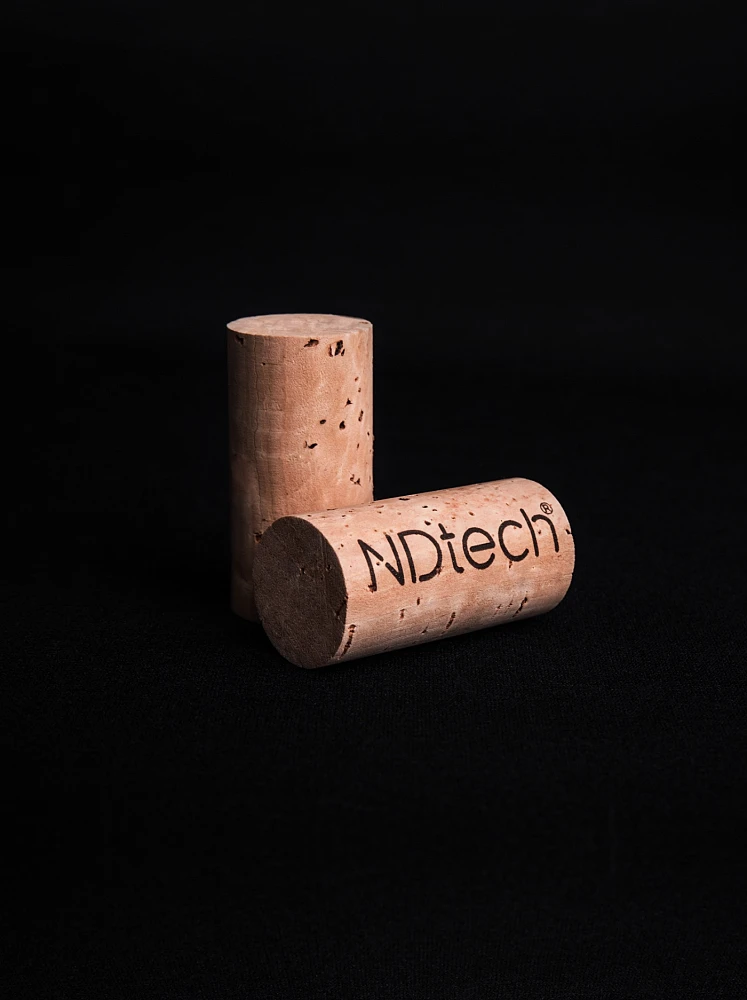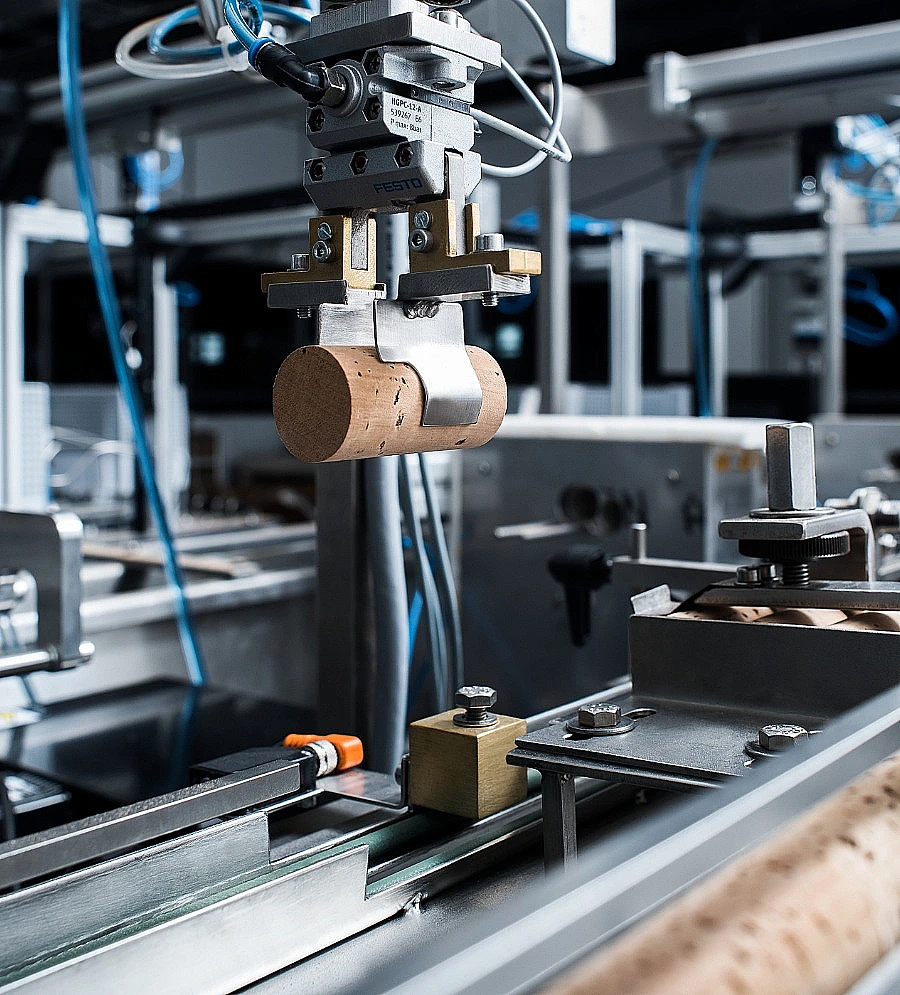- Portfolio
- Product
Portfolio
BackNDtech® The world's first natural cork with a non-detectable* TCA performance


NDtech is the industry's most advanced screening technology
NDtech® is an individualized quality control screening technology for natural cork stoppers that delivers the world's first natural cork with a non-detectable TCA performance*.
Developed and patented by Amorim, NDtech® is the industry's most advanced screening technology. NDtech® individually tests each wine cork for TCA, using unprecedented fast chromatography.
The high-precision screening technology can detect any cork with more than 0.5 nanograms of TCA per litre* (parts per trillion, the equivalent of one drop of water in 800 Olympic swimming pools), which will be automatically removed from the supply chain.
Cork Properties
| Tests | Characteristics | Specifications |
|---|---|---|
| Physical-Mechanical | Length (I) | l ± 0,7 mm |
| Diameter (d) | d ± 0,5 mm | |
| Ovalisation | ≤ 0,7 mm | |
| Moisture | 4% - 8% | |
| Extraction force | 15 - 45 daN | |
| Chemical | Peroxide content | ≤ 0,1 mg/stopper |
| Dust content | ≤ 2 mg/ stopper | |
| 2, 4, 6 - Trichloroanisole (TCA) | < 0,5 ng/L* | |
| Visual | Visual Grade (1) | Reference ≥ -5% |
| OTR** (Oxygen Transfer Rate) | 60 months | 2,8 mg/stopper |
| 36 months | 2,7 mg/stopper | |
| 24 months | 2,6 mg/stopper |
(1) Deviation with regard to reference sample. Stopper sampling methods as per ISO 2859 standard - Cork Products.
*releasable TCA content at or below the 0.5 ng/L quantification limit; analysis performed in accordance to ISO 20752.
**OTR values established according to the method described in “Lopes, P.; Saucier, C.; Glories, Y. Nondestructive colorimetric method to determine the oxygen diffusion rate through closures used in winemaking”. J. Agric. Food Chem. 2005, 53, 6967-6973
- Amorim can calculate the required cork diameter by studying the internal profile of the bottleneck, the characteristics of the wine and the corking conditions.
- Order your cork stoppers for immediate use. These cork stoppers should be used within six months of the date of manufacture.
- Store the cork stoppers in their original packaging, in a well-ventilated room with controlled temperature between 15ºC and 25ºC and 50% to 70% humidity.
- Do not leave boxes and/or bags open with surplus cork stoppers.
- Ensure any dust is removed before corking.
- Ensure the cork is compressed smoothly, to a diameter no less than 15,5 mm.
- Ensure insertion of the cork is as quick as possible.
- For standard bottlenecks, the cork should be inserted to 1 mm below the top of the neck.
- Minimise moisture on the inside of the bottleneck.
- Headspace at 20ºC should be at least 15 mm.
- Don’t leave the cork stoppers in the feeder as to avoid dust.
- Always use stoppers with a surface treatment suitable for the type of beverage, bottling process and selected bottle.
- Vacuum must be created in order to prevent internal pressures.
- Maintain the corker jaws free of nicks and signs of wear.
- Ensure proper alignment of plunger and location ring.
- Ensure corking machine operates smoothly, especially during compression.
- Clean all cork-handling surfaces regularly with chlorinefree products.
- Ensure the equipment is suited for the cork and bottle used.
- After bottling, the bottles should be kept in an upright position for at least 10 minutes.
- Ideal bottle storage conditions are 12º-18ºC at 50-70% humidity.
- Keep the wine cellar free of insects.
- Bottles should be transported in an upright position.
- The product must not be stored in a location exposed to sunlight, heated environment and in direct contact with the ground.
All Amorim Cork, S.A. products comply with existing regulations and legislation (European and FDA - Food and Drug Administration) for products in contact with food.

